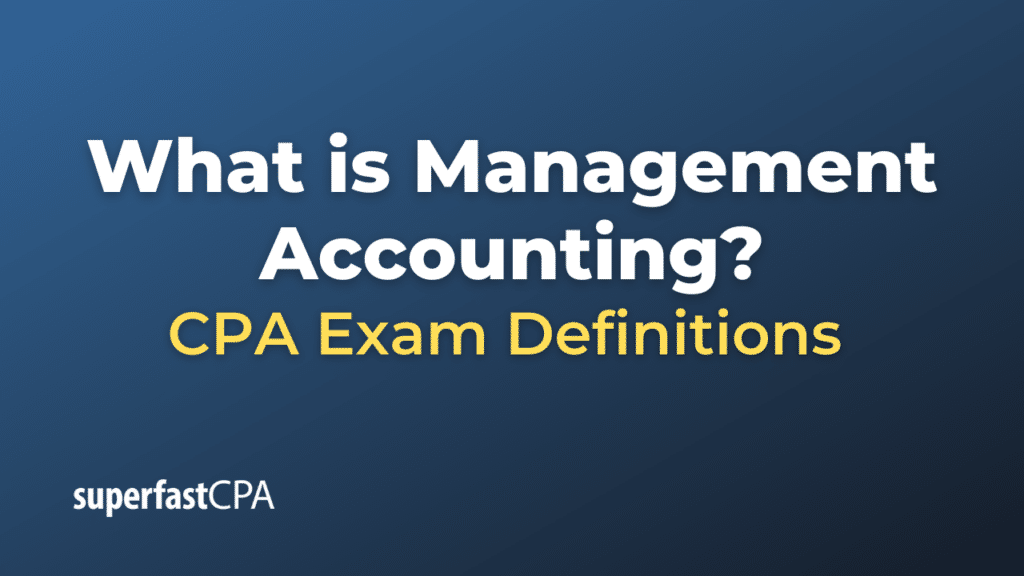Management Accounting
Management accounting, also known as managerial accounting, is the process of measuring, analyzing, interpreting, and communicating financial information to managers, who use this information to make strategic decisions for the organization.
While financial accounting is focused on preparing financial statements for external stakeholders, such as investors and creditors, management accounting is focused on providing useful information to internal stakeholders, primarily the managers of the organization.
Key aspects of management accounting include:
- Forward-looking: Management accounting often involves forecasting future performance and the impact of strategic decisions, which contrasts with the historical focus of financial accounting.
- No mandated rules: Unlike financial accounting, which must comply with generally accepted accounting principles (GAAP), management accounting does not have to follow these rules. This allows management accountants to use whatever methods are most useful for decision-making within their organization.
- Detailed reports: Management accounting reports are often more detailed than financial accounting reports, breaking down costs, revenues, and profitability by product, department, or customer segment.
- Decision-making: Management accounting plays a crucial role in strategic decision-making, providing managers with the information they need to make informed decisions about budgeting, performance measurement, pricing, capital investments, and more.
In summary, management accounting is an essential tool for managers in an organization to make informed business decisions and to plan for future business operations.
Example of Management Accounting
Let’s consider a scenario involving a manufacturing company.
Suppose a manufacturing company is trying to decide whether to continue producing one of its products. The company’s management accountant might prepare a detailed cost-volume-profit analysis to help make this decision.
First, the accountant would identify all of the costs associated with producing the product. This would include direct costs such as materials and labor, as well as indirect costs such as overhead. The accountant would also calculate how these costs behave at different levels of production (i.e., which costs are variable and will increase with production volume, and which costs are fixed and will not change).
Next, the accountant would analyze the product’s sales price, sales volume, and the company’s overall sales mix. This would allow the accountant to estimate the product’s contribution margin (sales minus variable costs), as well as the amount of sales needed to cover fixed costs and reach the break-even point.
The accountant might also consider other factors, such as the product’s impact on the company’s brand, its role in the company’s product portfolio, and the potential effects on other sales if the product is discontinued.
Based on this analysis, the company’s management could then make an informed decision about whether to continue producing the product. If the product is not covering its variable costs or contributing to fixed costs, it may be a candidate for discontinuation. But if the product is profitable and aligns with the company’s strategic goals, it may be worth continuing to produce.
This is just one example of how management accounting can provide crucial information for decision-making within an organization. Other examples could involve budgeting, performance measurement, capital investment decisions, and more.














